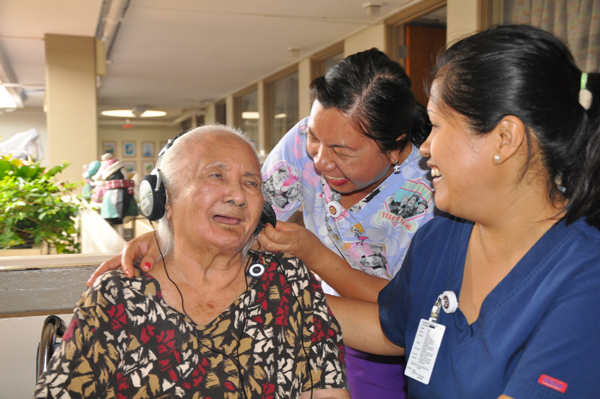When Lucille Fletcher recently started singing and waving her arms when a jazz musician was performing at Hale Makua Wailuku, many care partners were amazed at how animated she was and how well she knew the lyrics. It reminded care partner Connie Miller of a YouTube video she’d seen in which an elderly nursing home resident responded positively to listening to his favorite music on an iPod. Maui MacNet donated a Shuffle and Connie downloaded songs from the 1940’s. When the headphone were put on, Lucille’s face lit up and she started singing. When asked if she liked the music, she responded “I love it!”
This picture shows care partners Evelyn Orquia and Rosalie Alcon delighting in Lucille’s response to the music. When Lucille’s grandson heard about how meaningful this was to his grandma, he agreed to buying an iPod just for her. Now she has her own to listen to anytime, and the donated one is shared by many other residents, who are enjoying Hawaiian music in addition to the 1940’s classics.
This is an example of Eden Alternative Principle 6: “Meaningless activity corrodes the human spirit. The opportunity to do things that we find meaningful is essential to human health.” Lucille finds meaning in listening to music, and we can see that in the way she responds to it.


